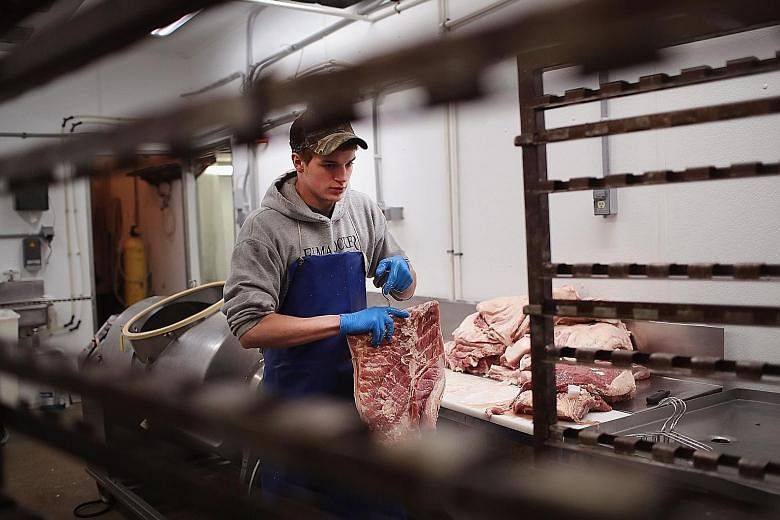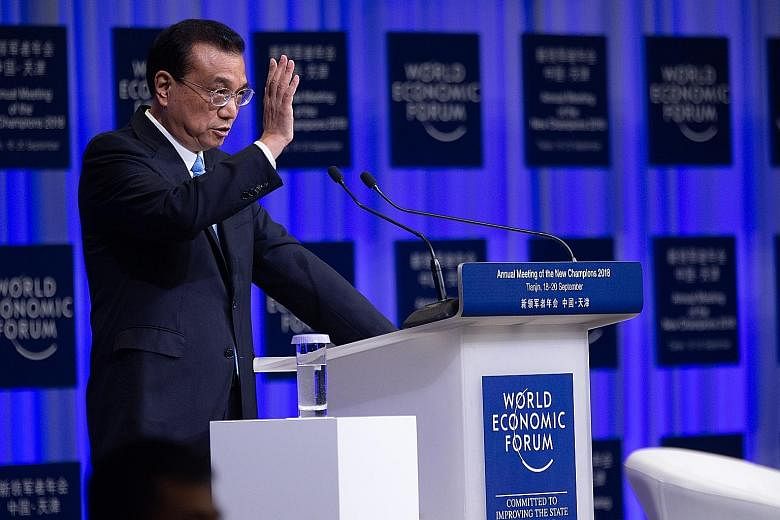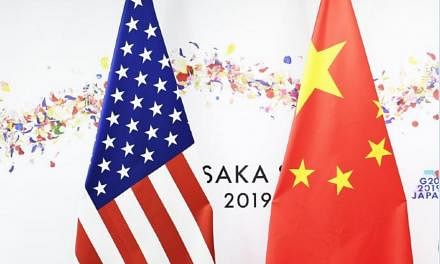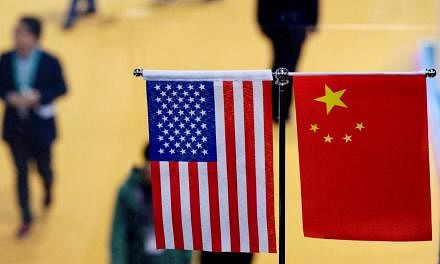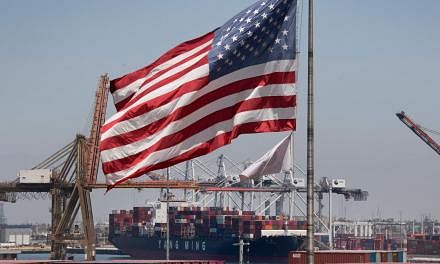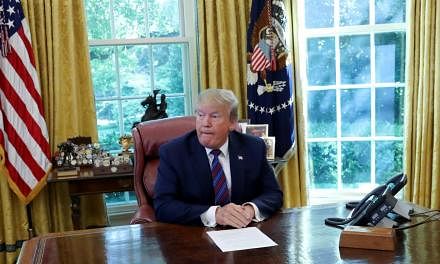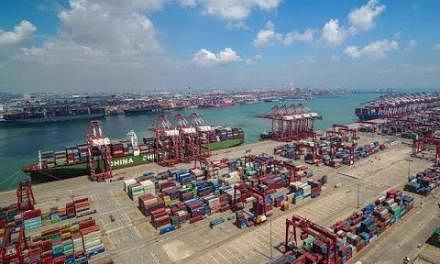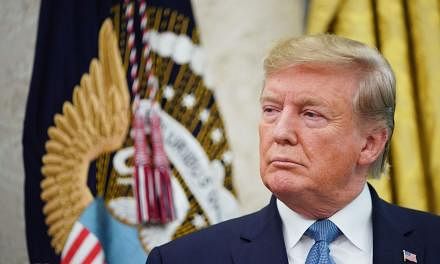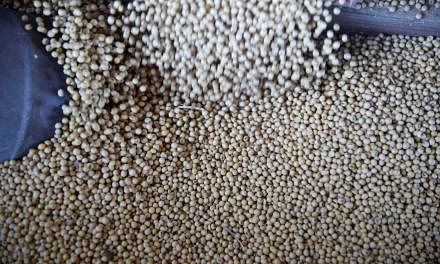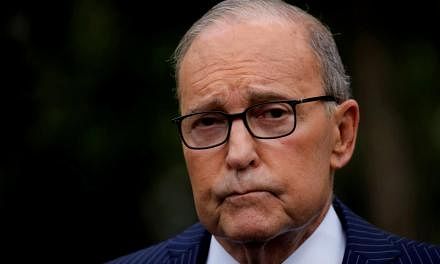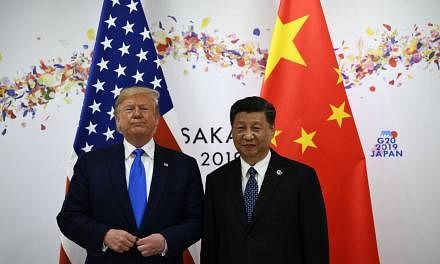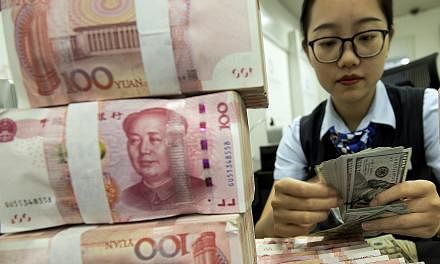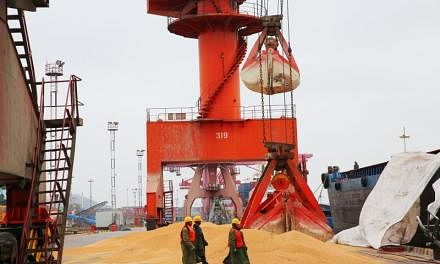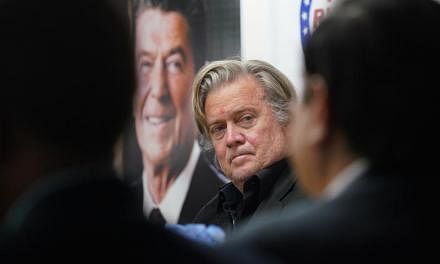China has over the past decades met numerous severe challenges and pulled through each time, Premier Li Keqiang said yesterday as the trade conflict with the United States deepened.
Beijing has sufficient tools to give it the resilience to cope with current difficulties, he said in a speech in Tianjin at the Summer Davos, an annual event of the World Economic Forum. "China's development over the past decades has always been achieved through overcoming all sorts of difficulties and challenges," he pointed out.
Mr Li's remarks came after the Trump administration announced new tariffs on Chinese imports, prompting Beijing to retaliate with levies of its own on US imports.
The new round of tit-for-tat tariffs brings the total amount of Chinese goods facing additional levies to US$250 billion (S$342 billion) and that of US goods to US$110 billion.
There are threats of more levies to come by US President Donald Trump as he seeks to pressure China to give in to US demands on reducing the trade imbalance, giving US firms greater access to Chinese markets and addressing concerns of unfair trade practices such as forced technology transfers.
Mr Li did not mention the trade dispute but he slammed unilateralism, saying it did not offer solutions and that it was essential to uphold the principles of multilateralism and free trade.
He also refuted Mr Trump's accusation that Beijing has been deliberately manipulating the Chinese currency, the yuan, or renminbi, which has lost about 9 per cent of its value since April.
"Recent fluctuations in the renminbi exchange rate have been seen by some as an intentional measure on the part of China. This is simply not true," he said. "Persistent fluctuation of the renminbi will do more harm than good to our country. China will never go down the path of stimulating exports by devaluing its currency."
Instead, it will work to create conditions for keeping the value of the yuan stable and stick with market-oriented foreign exchange rate reform, he said.
He stressed that China would not be resorting to massive economic stimulus but instead take "pre-emptive measures" and fine-tune its macro-economic policies.
-
BEIJING'S LATEST TARIFFS ON U.S. GOODS
-
5%
Additional duty on about 1,600 kinds of US products, including smaller aircraft, computers and textiles.

10%
Extra tariffs on more than 3,500 items including chemicals, meat, wheat, wine and LNG
In 2008, China adopted a huge stimulus package to deal with the global financial crisis which eventually saddled the country with huge debts and industrial overcapacity.
First and foremost, said Mr Li, China will take measures to ensure employment security, adding that as a populous nation, stabilising employment is always a top priority.
To this end, the government would cut taxes and fees to reduce the burden of companies and stimulate the market. It would also make financing more accessible and affordable to businesses, particularly to small and micro-sized businesses which are the biggest providers of jobs in China, said Mr Li.
Consumption is now a key driver of growth in China and efforts would be made to ensure that it will be the primary driver of growth, including implementing a new personal income tax law that will put more money in the pockets of the Chinese people.
Mr Li vowed that China would continue to increase the pace of opening up and reform and that in its push for innovation and new drivers of growth, it would ensure that there was a level playing field for local and foreign firms alike.
US and European firms have been calling for equal treatment and the US trade association AmCham China on Tuesday urged an early return to trade negotiations between the US and China based on fair and reciprocal treatment of US firms.
